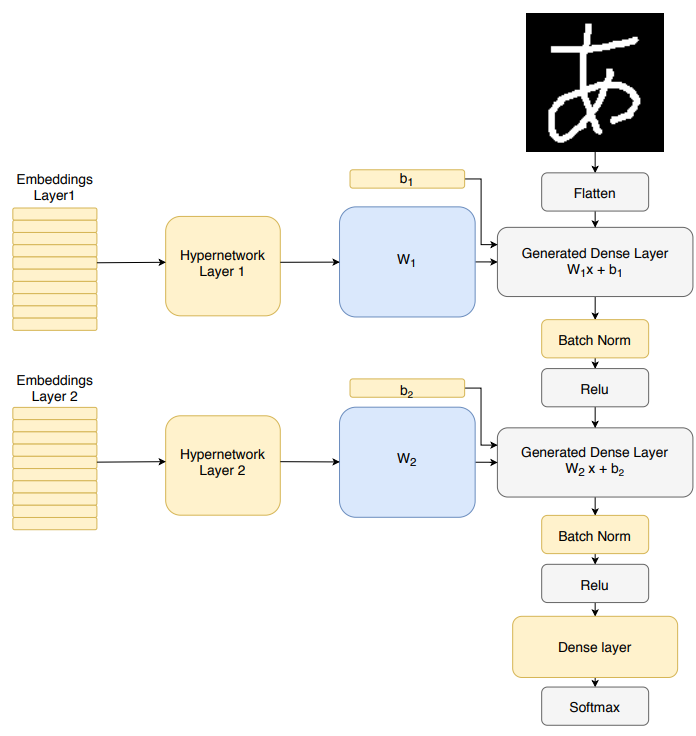This repository contains the code for the paper: Utilizing the Untapped Potential of Indirect Encoding for Neural Networks with Meta Learning
It contains:
- Our pytorch implementation of MAML [1]
- Our implementation of hypernetworks [2] for fully connected networks.
- Experiments to compare indirect and direct ecoding when training with meta learning and greedy learning.
Here is a diagram of the indirect architecture used. The yellow boxes are learned parameters, the blue boxes are generated parameters and the gray boxes are functions:
To download and prepare the omniglot dataset run:
python download_omniglot.py path/to/store/datasetThen replace the path in es_maml/omniglot/omniglot_data_singleton.py with your /path/to/store/dataset
dataset = np.load("/path/to/store/dataset/omniglot.npy")Then set these variables in run_plain_maml_experiemnt.py
RESULT_ROOT_PATH = "/path/to/store/resuts"
EXPERIMENT_NAME = "name_of_result_folder"
gpus = ["cuda:0","cuda:1"]
concurrent_processes_per_gpu = 2Then run the main experiment:
python run_plain_maml_experiemnt.pyThis will queue up the runs with all the different configurations, making sure all the gpus are constantly busy.
Results will be saved in the specified RESULT_ROOT_PATH. The run will save various plots, arrays and models. (see plain_maml.py for the details on what is saved)
Results can be analysed with the notebook: analyse_results.ipynb
2021.07.04: fix bug effecting maml with more than 1 finetuning steps. This does not effect results in paper, since we only used a single fintuning step.
The code to download and preprocess the omniglot dataset was taken from https://github.com/dragen1860/MAML-Pytorch/blob/master/omniglot.py
[1] Finn, Chelsea, Pieter Abbeel, and Sergey Levine. (2017). "Model-agnostic meta-learning for fast adaptation of deep networks." arXiv preprint arXiv:1703.03400
[2] Ha, David and Dai, Andrew and Le, Quoc V (2016). "Hypernetworks" arXiv preprint arXiv:1609.09106
